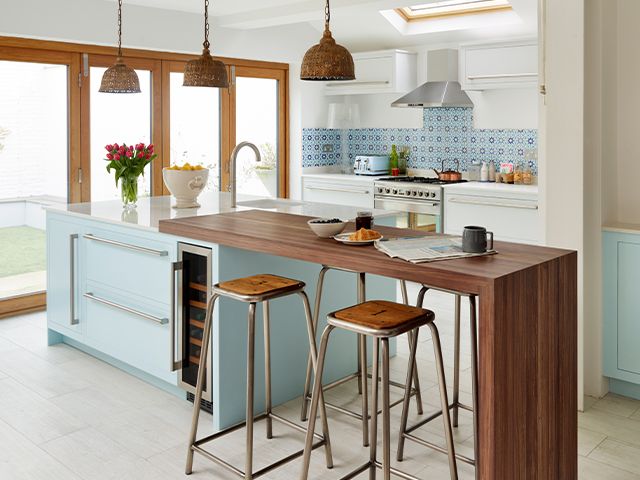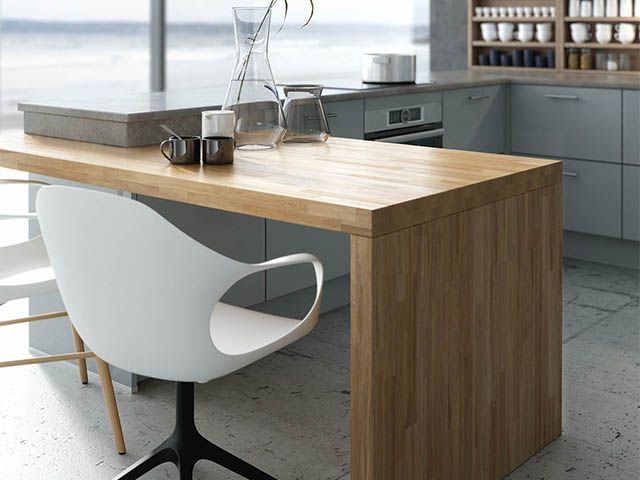
How to design a breakfast bar into your kitchen
A breakfast bar is a wonderful addition to any kitchen design, whether you’re in need of extra seating or would love a stand alone island but you haven’t quite got the space. We spoke to Melissa Klink, Head of Design for Harvey Jones about her design tips for breakfast bars.
Multi-functional
A breakfast bar is a versatile piece perfect for a multifunctional kitchen. With the right seating, it can work as a dining table where to enjoy a quick breakfast or informal meals with family and friends, while it can also double up as a bar and buffet area to serve drinks and canapes when hosting a party.

Photo: Cult Furniture
Space-saving
One of the advantages of a breakfast bar is its size – freestanding breakfast bars takes up much less space than a dining table, particularly considering it’s usually styled with stools that will be tucked underneath. If it’s incorporated into an island, there really is no need for a dining table, unless you have the space for it.
Consider size
Before investing in a breakfast bar, make sure you choose the right size for your space: a small breakfast bar will look out of place in a large room and will need to be paired with a wider island or a dining table.

Photo: Harvey Jones
Choosing the right materials
In terms of materials, breakfast bars need to be durable, hardwearing and easy to clean. Quartz is a beautiful, resilient surface – it’s smooth and easy to clean, while also largely scratch and stain resistant. If your budget doesn’t quite stretch to quartz you can always opt for a laminate option that mimics the look and style of quartz.

Photo: Harvey Jones
Add contrast
If you’re planning to have a breakfast bar integrated in an island, a matching worktop will look very sleek and sophisticated. However, if the breakfast bar is on a split-level, why not go for a contrasting colour that will add a little bit of drama and interest to the scheme.




